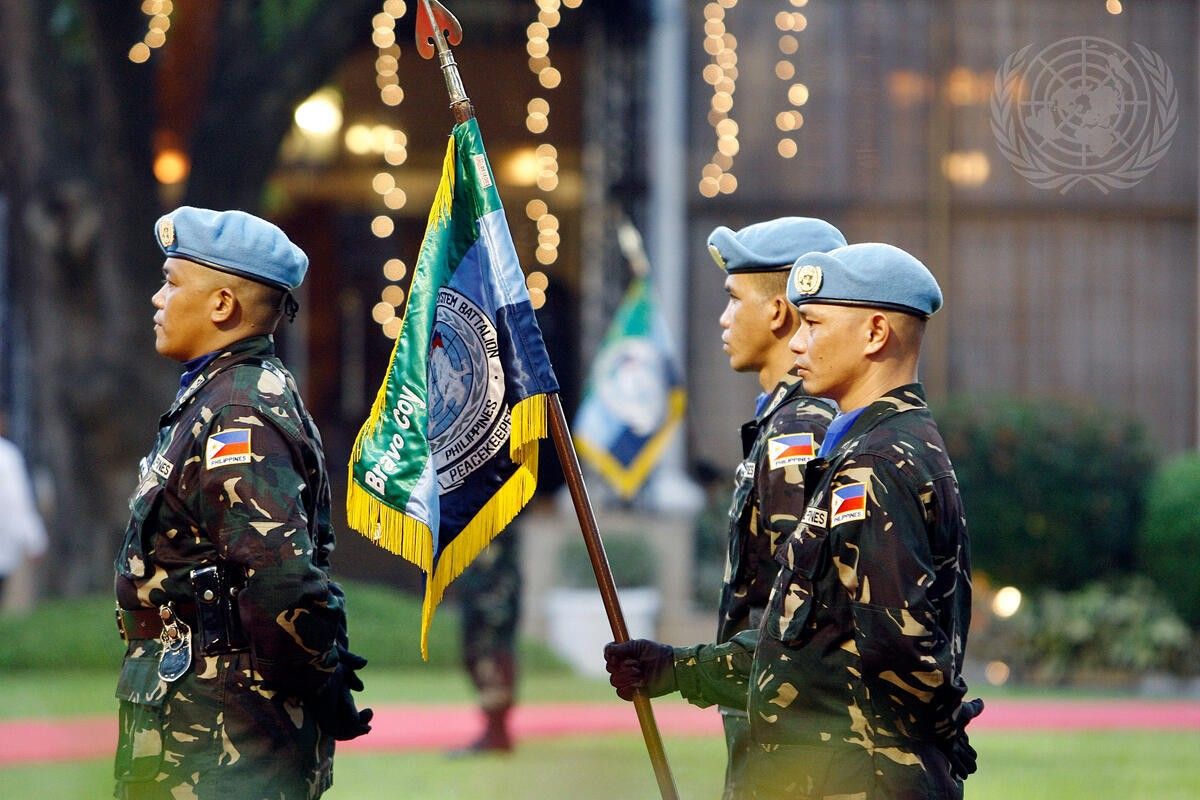When someone mentions The Philippines, the image of a tropical country with a major Catholic population immediately pops up into our heads. Even we view Filipinos in a certain lens: they speak bad English, love rice, and sing the best at family karaokes.
Yet, beyond all its stereotypes, the island nation has quite the prominent role in diplomacy and international relations. Say, it is one of the founders of ASEAN (Association of Southeast Asian Nations). In the international level, The Philippines also takes center stage as one of the signatories of the UN (United Nations) Charter.
The First Southeast Asian Nation in the UN
The Philippines is one of the 51 founding members of the UN. It is one of the seven Asian nations to sign the organization's Charter in San Fransisco, USA on June 26, 1945, the others being China, India, Iran, Iraq, Lebanon, and Syria. The Philippines was also the only Southeast Asian nation at that time to sign the UN Charter.
Uniquely, The Philippines wasn't even fully independent at the time the Charter was signed. Although Filipinos commemorate their nation's independence on June 12, 1898 – the date they became free of Spanish colonial rule – the United States still had control over the island country for many years after.
In 1935, the archipelago became known as The Philippines Commonwealth, governed under American control. During this period of history, the country prepared itself for independence, which was granted by the United States in 1946.
Therefore, when The Philippines signed the UN Charter, it was still technically a colony. This paved the way for other Southeast Asian nations to fight for independence and participate more actively in international affairs.
The Philippines in the UN Today
Embracing the spirit of multilateralism, The Philippines is now an active member of the UN. The UN provides policy guidance, technical assistance, and capacity-building programs in The Philippines. The institution works by mobilizing stakeholders, such as communities and NGOs (non-governmental organizations), and pushing the national government to implement its projects at the local level.
The UN's official team website for The Philippines notes that 29 UN entities operate in the country. These organizations are coordinated by the UNCT (UN Country Team) and led by the UN Resident Coordinator, a representative of the UNGA (UN General Assembly).
The Philippines is thus involved in many of the UN's specialized agencies, such as the FAO (Food and Cultural Organization), WHO (World Health Organization), and UNHCR (UN High Commissioner for Refugees). It has also signed many international treaties and is an active member of the ICJ (International Court of Justice), signifying its loyalty to the principle of the rule of law.
Another example of The Philippines’ commitment in international law is its efforts in establishing an arbitral tribunal regarding the South China Sea dispute through the UNCLOS (UN Convention on the Law of the Sea).
As contemporary problems fill up the agenda of international relations, The Philippines also has paid more attention to issues like artificial intelligence, disaster risk reduction, outer space technology, and climate change in alignment with the 17 SDGs (Sustainable Development Goals). The country also urges the reformation of the UN Security Council, and even bids for a non-permanent seat in the body for the 2027–2028 working term.
"Build Peace, Not Make It"

Aside from the UN Charter, The Philippines also takes pride in the Manila Declaration. Approved by the UN in 1982, the Declaration reaffirms the obligation of states to settle international disputes through peaceful means.
Filipino statesman, Carlos Romulo, who just so happens to be the first Asian president of the UNGA, stated The Philippines’ commitment to this principle through the motto, “not to make peace, but build for peace”.
In his speech in the UNGA Headquarters, Department of Foreign Affairs Secretary Enrique A. Manalo states that this is proven through The Philippines’ contribution in the UN's peacekeeping and special political missions. Since 1963, the country has deployed more than 14,000 troops for peacekeeping missions, often to conflict zones, such as Kosovo and Timor-Leste.
A New Focus: Economy and Development
By 2028, The Philippines aims to reach a single-digit poverty rate. To achieve this, its contemporary foreign policy is predicated on the pursuit of economy and development to improve its diplomatic leverage, hence the nickname “development diplomacy”.
Renato Cruz de Castro (2010) in Pacific Affairs notes that this stance can be dated back to the late 1970s, during the years of the Marcos administration. Carlos Romulo himself was a proponent of development diplomacy, stating that diplomatic resources should be mobilized in search of economic opportunities abroad.
The Philippines aims to increase its economic gains through investment, exports, tourism, and ODA (Official Development Assistance) grants and loans. Another essential asset of The Philippines’ national economy is the presence of OFWs (overseas Filipino workers).
The Philippines is the largest exporter of overseas workers, surpassing countries like India, Pakistan, and China. Many Filipinos work as skilled laborers abroad, such as IT (information technology) technicians in Canada, nurses in the United States, and domestic service workers in the Middle East.
In 2006, it was even estimated that there are at least 8,23 million OFWs working in 170 countries, equivalent to 9,5% of the country's total population.
This also leads The Philippines to take part in international forums and agreements to protect the rights of OFWs, such as the Global Compact for Migration.
References
de Castro, Renato Cruz. “Weakness and Gambits in Philippine Foreign Policy in the Twenty-first Century.” Pacific Affairs 83, no.4 (2010): 697–717. https://www.jstor.org/stable/25766479.
Manalo, Enrique A. “Building for Peace.” Permanent Mission of the Republic of the Philippines to the United Nations. Presented on September 28, 2024. Accessed on July 1, 2025. https://www.un.int/philippines/statements_speeches/%E2%80%9Cbuilding-peace%E2%80%9D.
UN Philippines. “United Nations in the Philippines. United Nations. Accessed on July 1, 2025. https://philippines.un.org/en/about/about-the-un.



















